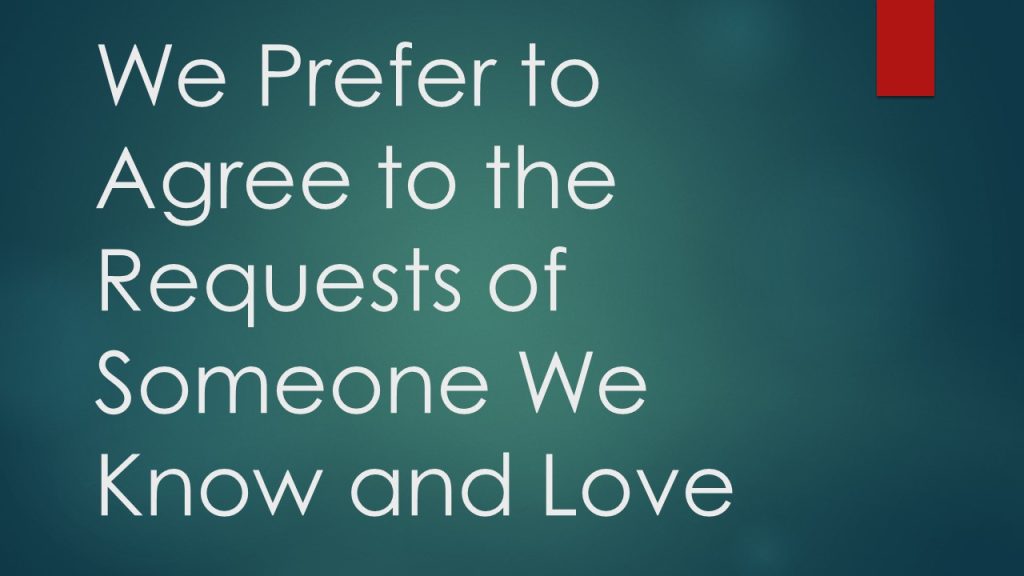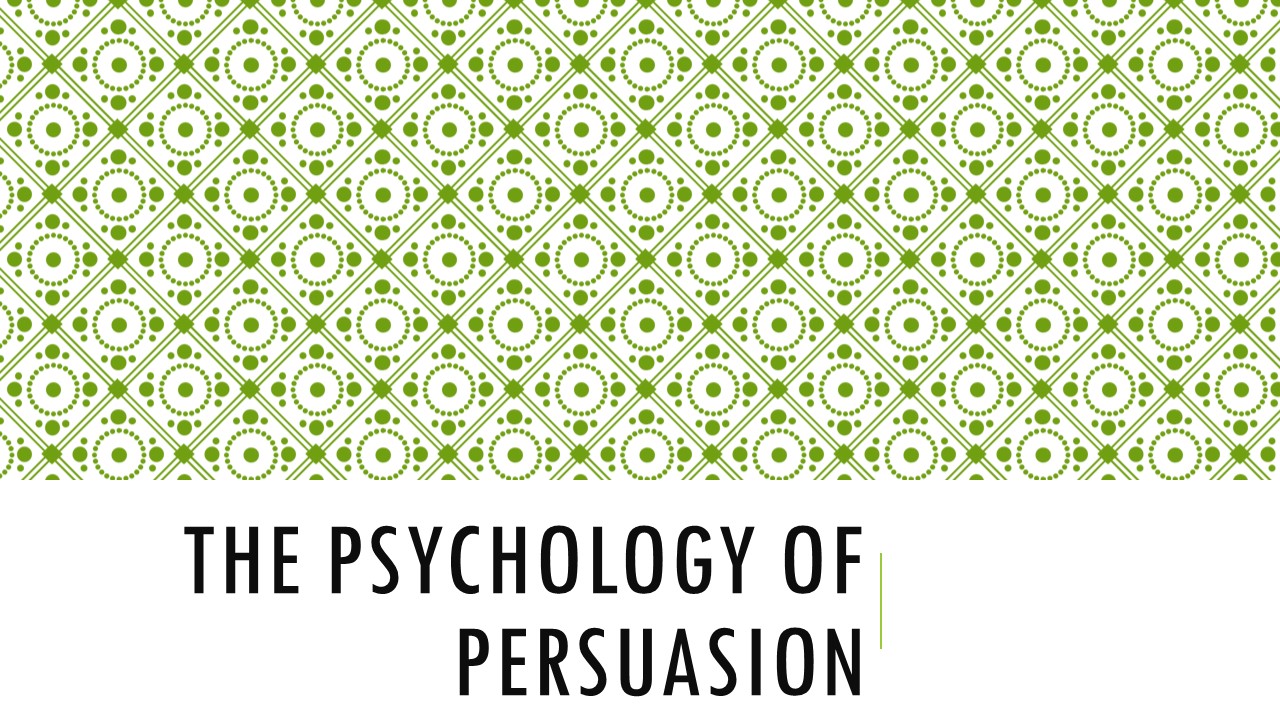The rapid pace of modern everyday life requires that we have prepared patterns of behavior, and we can automatically respond to many events. In fact, such a simplified approach is used to help people, because sometimes we just need to deviate from a complex way of making a decision. It is hard to imagine that we will be able to analyze all the actions and thoughts of each person, events and situations that we encounter even in one day. We have neither the time, nor the strength, nor the ability to do this.
That’s why we use stereotyped behavior. And this approach works effectively until there are those people who want to use these shortcuts for their own benefit. Counteractions should be used against such manipulators. In his book Influence: The Psychology of Persuasion, Robert B. Cialdini describes the most popular sources of information that we use to make automatic decisions: reciprocation, consistency, social proof, liking, authority, and scarcity. We often use these hints when we don’t have the time, energy, or resources to conduct a full analysis of the situation.
We are most vulnerable in those moments when we are in a hurry, experiencing stress, uncertainty, indifference, distraction or fatigue. For a clearer understanding of how the use of shortcuts can affect our lives and what actions we can take to protect ourselves, let’s analyze each technique separately.
Reciprocation
The reciprocation principle is as follows: we have a quite natural desire to repay in the same way for what another person provided us with: services, gifts, money, and the like. The rule requires that one action be answered with a similar action. A favor should be met with another favor. This method is taught to us from early childhood, which is why it is so deeply rooted in our culture. If you do not fulfill the conditions of the principle, then you will face public censure.
The approach itself carries the correct idea that it is impossible to be ungrateful, that in this way we help each other. But at the same time, this principle also has a dangerous power, since strangers using it can increase the likelihood that we will fulfill one of their requests. And if initially the interaction between people presupposes an equal exchange, then people with selfish goals direct their efforts to get benefits to a greater extent only for themselves. A small initial service can cause a sense of obligation to agree to a much larger return service.
Another consequence follows from this rule: the obligation to make a concession to the one who made a concession to us. In his book Influence: The Psychology of Persuasion the author calls this method: the rejection-then-retreat technique. Application: if you want someone to agree to your request, then you must first contact this person with a larger request so that he refuses you, and then you will ask for a smaller service that you were really interested in. As a rule, a person is inclined to agree to the second request.
Counteractions
The first advice of the author: it is necessary not to give the manipulator the opportunity to use this rule, to get ahead of him. If we can recognize the threat in time, then we will have a better chance of disarming the enemy.
The second advice of the author: it is necessary to accept the acceptable first proposals of others, but to accept these proposals only for what they are in essence, and not for what they appear to be. As soon as we realized that a person wants to apply the principle of reciprocation to manipulate us, the rule automatically ceases to apply.
Consistency
The consistency principle is as follows: if we have made a commitment, then our next steps should correspond to our previous decision. It is the obligation that underlies this rule. As soon as you have made a choice and taken a position, there is a natural desire to behave in accordance with this action, while we will justify ourselves in any way, even by engaging in self-deception. It is considered that a person whose actions are inconsistent is indecisive and confused, at the same time logical actions characterize a person with high intellectual abilities. Therefore, based on these conclusions, it is in our interests to be consistent and we easily get used to being consistent automatically, even in situations where it is unreasonable.
Counteractions
Author’s advice: know when the consistency principle is most likely to lead to the wrong choice. Robert B. Cialdini lists two types of signals that can alert us. We react to them with different parts of the body.
- The first kind of signal occurs right in the depths of our stomach when we realize that we are trapped in fulfilling a request that we know we don’t want to satisfy
- The second kind of signal occurs in the heart of hearts. It is the message sent by the heart of hearts that is the pure, basic feeling that needs to be listened to
Social Proof
The social proof principle is as follows: an act is right if it is done by other people, an idea is right if others think so. Usually, when a lot of people do something, it’s the right thing to do. This feature of the principle of social proof is both its main strength and its main weakness. This rule works best when we are unsure of ourselves, when the situation is unclear, when there is uncertainty, we are likely to look at the actions of others and accept them as correct. But, in addition, there is another condition: similarity. The principle of social proof works most effectively when we observe the behavior of people like us.
Counteractions
Author’s advice in his book Influence: The Psychology of Persuasion: usually the automatic response to social proof fails if we have incorrect data. Therefore, it is necessary to learn how to identify situations when inaccurate information is provided to us. Robert B. Cialdini identifies two such situations:
- The first situation occurs when social proof has been intentionally altered. Such situations are created artificially by manipulators for the purpose of deception. They pass off false data as truthful, thereby pursuing their goals. We need to be on our guard and listen to social proof only until we realize that some of the information is deliberately distorted. Often the manipulator is not particularly carefully disguised by such actions
- The second situation occurs when the principle of social proof does not work due to a natural error that occurred accidentally, but nevertheless can lead us to incorrect conclusions. Therefore, you should not completely rely on automatic behaviors, leave yourself room for maneuver
Liking
The liking principle is as follows: most of all, we prefer to agree to the requests of someone we know and love. You can increase sympathy in various ways, for example:
- Physical Attractiveness
We like beautiful people. We automatically attribute to them such positive traits as talent, kindness, honesty and intelligence. At the same time, we draw such conclusions without even suspecting that the main criterion subconsciously becomes physical attractiveness.
- Similarity
We like people who are similar to us, regardless of whether the similarity concerns views, character traits, origin or lifestyle.

- Compliments
We like to be praised. At the same time, even if a person understands that they are openly flattered, such a statement can still have an effect.
- Contact and Cooperation
We like things or people that we know. It is only important that they are not associated with negative experiences.
- Conditioning and Association
We don’t like it when bad news is brought to us. We have a natural dislike for the person who delivered this information to us. A simple association with them is enough to cause our negative reaction. The principle of association also works for positive emotions.
Counteractions
Author’s advice: since there are a large number of techniques to increase the ability to like, one strategy is needed to block all these options. The secret of this approach may lie in its timeliness. The time for a defensive reaction comes when we feel that we like a person more than we should under the circumstances. When we understand this, we need to separate two things: the person we are dealing with and who we like, and the actions we intend to perform. We should focus solely on the merits of the deal, and not on the merits of the person who offers it.
Authority
The authority principle is as follows: we are more likely to obey people with power or authority. Even the appearance of power is enough for a person to react automatically. There are several types of symbols that can cause our submission in the absence of genuine power.
- Titles
It usually takes years of work and achievements to earn a real title. But scammers use these techniques without making the slightest effort, they themselves hang a label with a title on themselves and receive automatic respect at the same time.
- Clothes
With the help of clothes, manipulators can also emphasize their belonging to the circle of people with power. In this case, you can use different types of uniforms, or a well-tailored business suit.
- Trappings
In addition to clothes, you can emphasize your status with the help of attributes: jewelry and cars.
Counteractions
Author’s advice in his book Influence: The Psychology of Persuasion: it is necessary to exclude the element of surprise. We need to realize how much symbols of power influence our behavior and at the same time how easily they can be forged. It is necessary to learn to recognize when it is best to follow the instructions of authority, and when they should be resisted. To facilitate this task, Robert B. Cialdini advises asking two questions:
- “Is this authority truly an expert?”
- “How truthful can we expect the expert to be here?”
Scarcity
The scarcity principle is as follows: opportunities seem more valuable to us when their availability is limited. People are more motivated by the thought of losing something than by the thought of acquiring something of equal value. This rule applies not only to things or goods, but also applies to information. According to this principle, information seems more convincing if it has limited access.
Counteractions
Author’s advice: it is necessary to answer the question: why do we want to receive this product? Two answers can be: we want to own a limited product or we want to use it. If we are governed only by the desire to possess, then no reasonable arguments will change our decision to acquire it. But very often we don’t want something solely for the sake of owning it. Instead, we want it because of its usefulness. In such cases, it is important to remember that scarce things do not taste, do not feel, do not sound, do not drive and do not work better because of their limited availability.
We must recognize that in order to facilitate our daily life, we simply need to have shortcuts for making decisions, but at the same time we must understand the danger they can carry. Therefore, it is better to know the enemy in person. This book Influence: The Psychology of Persuasion helps to find out the most frequent cases of stereotypical behavior, and also gives answers on how you can protect yourself from the unfair use of these techniques.
If you like this book, you can find 50 Ways to be Persuasive interesting for you as well. And you can always access more marketing, management and sales Book Reviews in the special section of the website.





